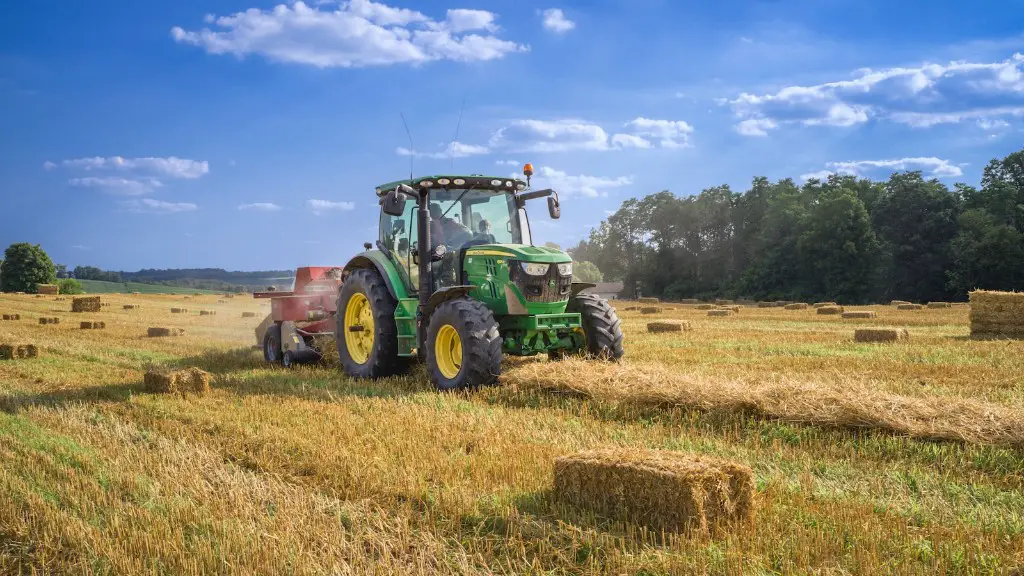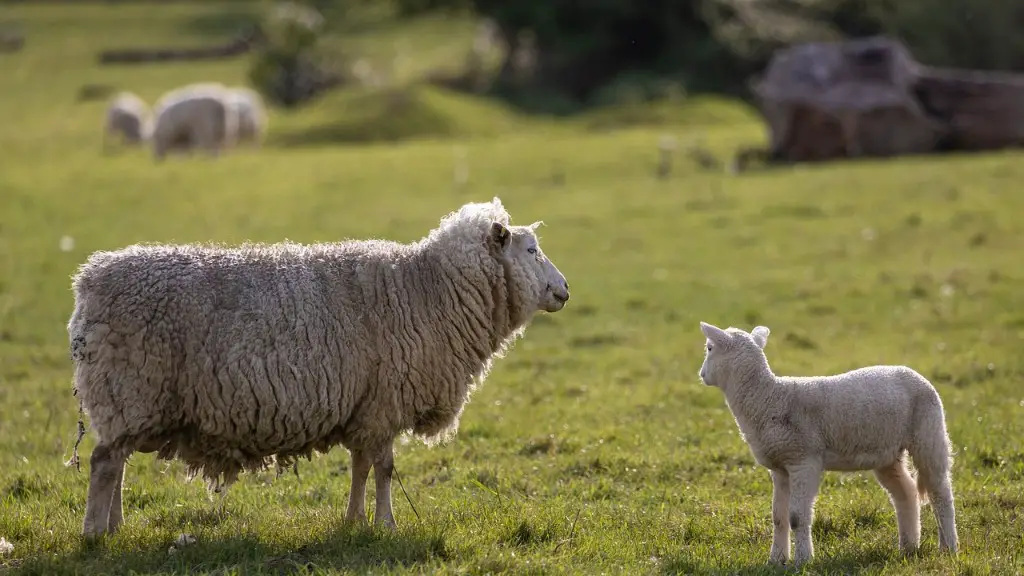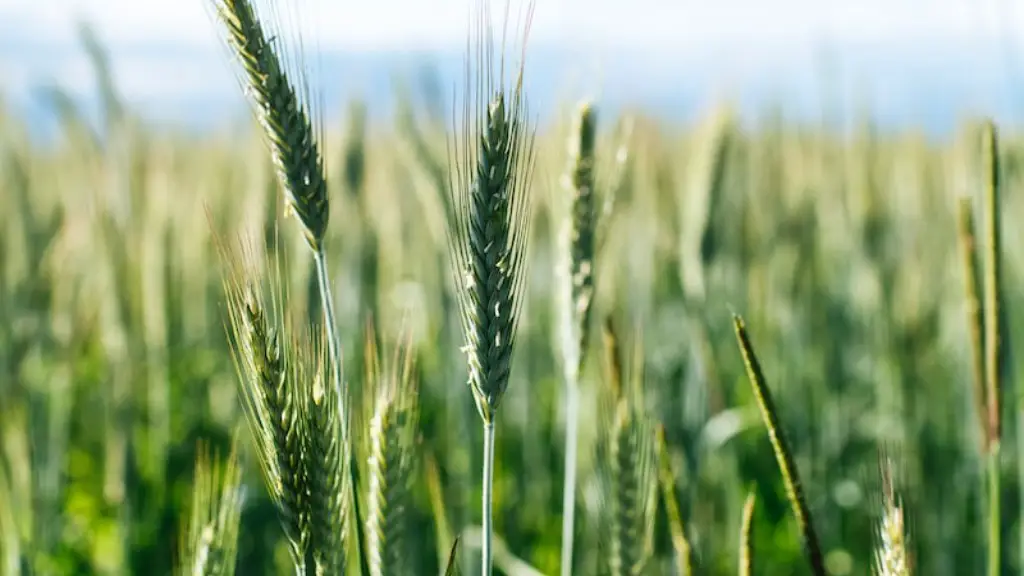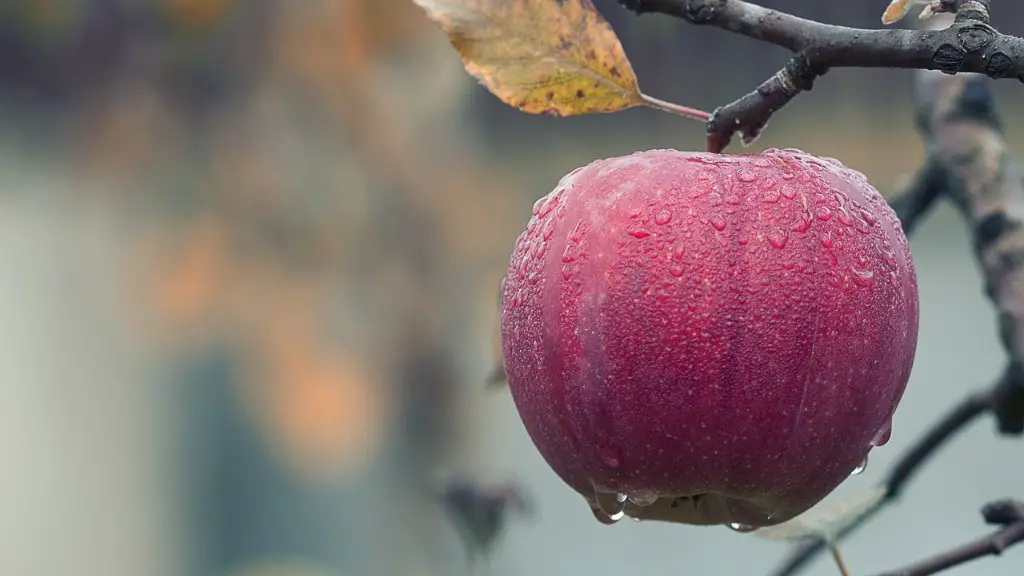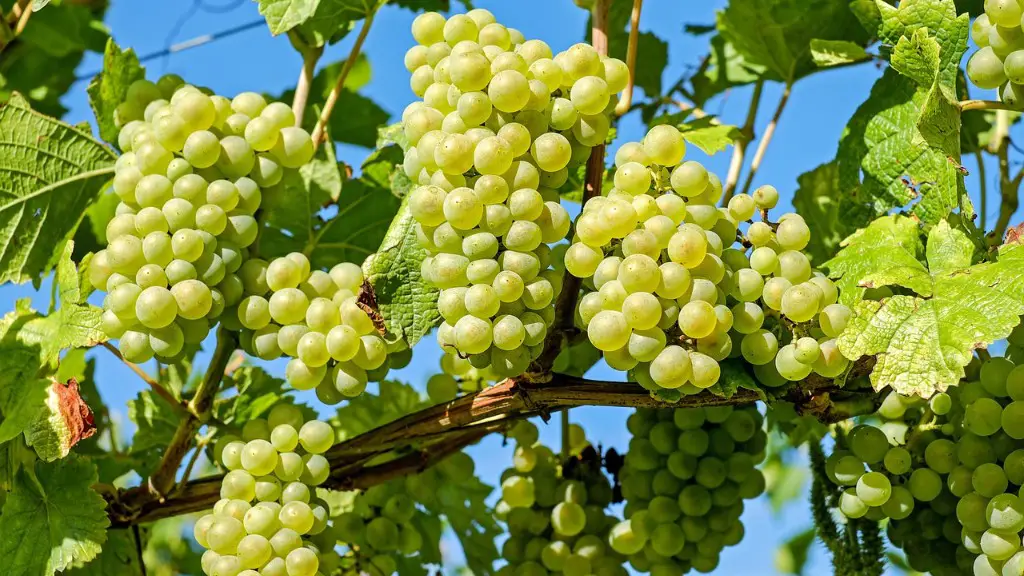Agriculture is important to society because it is the process of producing food, feed, fiber, and other desired products by managing the growth of plants and animals. It is the foundation of our food system and a key component of the global economy.
Agriculture is important to society because it is the primary source of food and fiber. Agriculture provides the vast majority of the world’s food supply, as well as the raw materials for many of the world’s industries. Agriculture is also a major source of income and employment for many people around the world.
What are the importance of agriculture in the society?
Agriculture provides most of the world’s food and fabrics. Cotton, wool, and leather are all agricultural products. Agriculture also provides wood for construction and paper products. These products, as well as the agricultural methods used, may vary from one part of the world to another.
Agriculture is essential to human life. It provides food, clothing, and shelter. It helps people to enjoy a higher quality of life. Agriculture is a key industry in many countries. It employs millions of people and generates billions of dollars in revenue.
What are 5 important of agriculture
The present era of farming contains a lot of different aspects, but it can be broadly referred to as the promotion, processing, marketing, and distribution of crops and livestock products. Agriculture is important because it provides food and other products for people all over the world. It also helps to support the economy by providing jobs for people in the agricultural industry.
Farming is a great way to get healthy and stay active. It is also a very challenging and stimulating profession that can provide a good source of income in rural areas. Farm work can help develop younger generations and help the environment thrive.
What are the 10 benefits of agriculture?
Agriculture in Nigeria is vital for the country’s economy and food security. It employs a large percentage of the population and provides raw materials for many industries. Agriculture also plays a role in protecting the environment and preserving biodiversity. Nigeria’s exports of agricultural products earn important foreign exchange for the country. In addition, agriculture is a major source of subsistence for many Nigerians.
While agriculture can have negative impacts on the environment, it can also have positive impacts. Agriculture can trap greenhouse gases within crops and soils, or mitigate flood risks through the adoption of certain farming practices. These positive impacts can help offset the negative impacts of agriculture, and make it a more sustainable industry.
How did agriculture change human society?
The availability of food is one of the key factors in determining the size and density of a population. More abundant food supplies can support denser populations, as people are not as worried about where their next meal is coming from. Agriculture also ties people to their land, as they need to be close to their crops in order to tend to them. This has led to the growth of small settlements into towns and cities.
Agriculture plays a major role in economic growth and development. It is the provider of food, which is a cornerstone of human existence. As a furnisher of industrial raw materials, it is an important contributor to economic activity in other sectors of the economy.
Agricultural activity has a significant impact on the environment. It is a major source of greenhouse gas emissions, and is also responsible for deforestation, land degradation, and water pollution.
Despite these negative impacts, agriculture is still essential for the global economy, and efforts are being made to make it more sustainable.
How does agriculture reduce poverty
The very poorest people primarily benefit from agricultural growth through increased demand for their labour. Agricultural growth increases the probability of obtaining employment, and it may increase the salary level, thereby increasing the income that can be accrued from selling labour. The increased demand for labour can benefit the very poorest people in society, as they are more likely to be able to find work and earn a better wage. This can help to reduce poverty and improve standards of living.
Agriculture is vital to the overall health of a country’s economy. It is an important part of any nation’s economic structure and gives job possibilities to a huge section of the people in addition to providing food and raw materials.
How agriculture change the life?
Agriculture has brought about many important changes in human life. For one, it has allowed us to settle down in one place instead of being constantly on the move. This has allowed us to grow our own food, which has been a huge step forward for our species. Additionally, it has allowed us to develop complex civilizations and cultures.
An agricultural society is a society that is based on the cultivation of crops and the raising of animals for food and other products. The people in an agricultural society generally lead a more settled lifestyle than those in nomadic hunter-gatherer or semi-nomadic pastoral societies. This is because they live permanently near the land that is farmed.
How does agriculture change people’s lives
When early humans began farming, they were able to produce enough food that they no longer had to migrate to their food source. This meant they could build permanent structures, and develop villages, towns, and eventually even cities. Closely connected to the rise of settled societies was an increase in population. This increase in population led to the development of civilizations.
Agriculture is not just a job for farmers. It covers a wider scope, including jobs such as machinery making, food processing, distribution, transportation, manufacturing, and more.
Improving rural employment opportunities is essential for the development of rural areas. By diversifying the types of jobs available, we can provide more opportunities for people to find meaningful work closer to home. This can help to retain talented young people in rural areas, and provide a much-needed boost to local economies.
What is the main impact of agriculture?
Its no secret that the agricultural industry is a leading polluter in many countries across the globe. Pesticides, fertilizers and other toxic farm chemicals can poison fresh water, marine ecosystems, air and soil – and they can remain in the environment for generations. This is a huge problem that needs to be addressed urgently.
There are a few things that can be done to try and mitigate this problem. For example, farmers can be encouraged to use less harmful chemicals, and to adopt more sustainable farming practices. Government regulations can also play a role in reducing the pollution caused by agriculture. But at the end of the day, its up to all of us – consumers and producers alike – to demand better for our environment. We need to do better for the planet, and for our future.
Agriculture is the backbone of the economy. It provides food and nutrition security and forms the basis for industrialization. Agricultural products are used as raw materials for industry and as food for consumers. Agriculture is also a major source of employment and livelihood for people in rural areas.
What are the main points of agriculture
Indian agriculture is characterized by a high dependence on the monsoon, which is a key factor in determining the success of the crop season. Additionally, cultivation in India tends to be labour-intensive, as pressure on landholdings has increased due to population growth. As a result, productivity levels in Indian agriculture are relatively low.
There are a number of factors to consider when determining the most valuable crops and livestock products. Global gross production value is one metric that can be used to measure the value of a crop or livestock product. The country with the highest gross production value for a particular crop or livestock product is typically the largest producer of that product.
Warp Up
Agriculture is important to society because it is the basis of human civilization. Agriculture allowed for the domestication of plants and animals, which led to the development of civilizations. Agriculture allowed for the growth of cities and the rise of civilizations. Agriculture is also responsible for the food that we eat. Without agriculture, we would not have the food that we need to survive.
Agriculture is a vital part of society. It provides food and medicine for people, and it helps to support the economy. Agriculture is also important for environmental conservation.
